In 2014, parts of Donetsk and Luhansk regions were occupied. At the time, many children aged 10–15 lived there. Some of them left together with their parents, but then returned to the occupied territories, while others never left at all. During the 10 years of war, the children grew up, but for various reasons they were never able to obtain a Ukrainian passport.
In 2022, after the outbreak of full-scale war, many of these people managed to leave with only a Ukrainian birth certificate. Some of them are now living in European countries without proper documents, with almost no rights. It is extremely difficult for them to obtain documents in Ukraine. New laws are gradually being adopted, but it is not yet clear how they will work. Yes, while this article was being written, there were some changes in the legislation of Ukraine and the EU countries, which will be discussed here. However, the main problem remains the vulnerable position of those who grew up in the occupied territories.
Allow me to tell you about this problem and introduce you to real people: “children of the occupation” who want to have the right to a full life.
“Sorry, we can’t help you”: why Ukrainians from the occupied territories can’t get a Ukrainian passport
“Are you from the LPR [Luhansk People’s Republic]? Well, go back to your LPR, get a passport, and stay there.” Young Ukrainians often hear this response when they contact Ukrainian embassies in the EU or the State Migration Service (SMS). There are other responses, such as: “Sorry, we can’t help you because we don’t know if this is really you.” Or even the curt reply: “No, there is nothing we can do.”
Employees of embassies and migration agencies respond in this way not because they are unwilling to help young people, but because of the existing restrictions in the law. For example, according to the law, citizens who lived in the uncontrolled territories and did not obtain a Ukrainian passport can only receive this document if they can prove their identity. To do this, they need to:
1. return to Ukraine and come in person to the territorial department of the State Migration Service (hereafter, the SMS);
2. provide additional Ukrainian documents with a photo to prove their identity (if they don’t have such documents, then only the following option is possible);
3. find three witnesses who can confirm their identity.
If the identity is confirmed, the person will receive an internal passport and will be able to apply for other documents, such as an international passport. Only then will the person have the right to live in Ukraine or in the country where they are currently residing, as well as the right to education, work, medical care, etc.
The problem is that most people who have never had a Ukrainian passport and have travelled to European countries from the occupied territories don’t have any other Ukrainian documents with a photo. They also often have no relatives in the government-controlled territories who could confirm their identity. This makes it much more difficult not only to obtain a passport, but also to travel within the EU or to return to Ukraine. Furthermore, undocumented citizens can’t legally work or study, nor can they attend official long-term language courses in the host country. They rely on the help of humanitarian organizations, including the Red Cross, which provides temporary housing, medical care, and short-term language courses. They also receive financial assistance from their host countries. But none of these are sustainable solutions, and if nothing changes, these people will face complete uncertainty, because EU countries provide only temporary support.
The people whose stories I will share below describe their state in the following way:
“I feel like a nobody. It’s like I don’t exist.”
“I am a person, but there’s no me.”
“I feel like I’m hanging in the air or in space. I don't know what will happen in six months, when there is no more aid from the host country.”
Below I present the stories of the “children of the occupation,” which took shape after hours of my conversations with them and were written in their own words. We spent a lot of time reminiscing, working through different issues and formulating dreams for the future. They also shared photos that convey their life in a new country and sometimes memories of their home under occupation.
Nastia: “I want to have some space to myself, my own room, my own place. But this is not yet possible, so I live one day at a time”
I’m from Luhansk. In 2014, I was 11 years old, now I’m 21. I managed to leave the occupied Luhansk for Finland, where I have been living for a year.
In 2014, I was with my parents who stayed in the city. We were just hiding in the basement from the shelling, waiting for it to end. Before that, I had never been outside the Luhansk region, and when the city was occupied, I did not go to the territories controlled by Ukraine.
When I turned 16, I never went to get a Ukrainian passport because none of my parents wanted to go with me: they didn’t support the idea at all. On the contrary, my mother and grandmother said that it was very difficult and that I would not be able to get through: that I would either not be allowed to leave or not allowed to enter. So, I just continued to live my life and mature. I graduated from school and college and got my driving license. I imagined and planned my future in the conditions I had. I always wanted to make a difference to this place, so I led groups of young people on hiking trips, participated in sports competitions, learnt to paint and organized two underground exhibitions for artists from Luhansk and the region. Of course, at the same time I was thinking about Ukrainian documents, but the situation was getting more and more complicated.
In 2020, Covid broke out, and the checkpoints were closed for a long time, and on 24 February 2022, a full-scale war began, which changed everything. Until September 2022, I was in Luhansk with my boyfriend, hiding from forced mobilization, because even I received a summons from the military recruitment office. And then, when the mobilization wave subsided a little, we decided to leave the occupied territories through Russia, relying on the help of volunteers. I had only my Ukrainian birth certificate and LPR passport with me. After interrogating me for seven hours, the Russian authorities did not let me through. So, we decided to try another route and drove through the fields – through Belarus, Latvia, Estonia – and ended up in Finland.
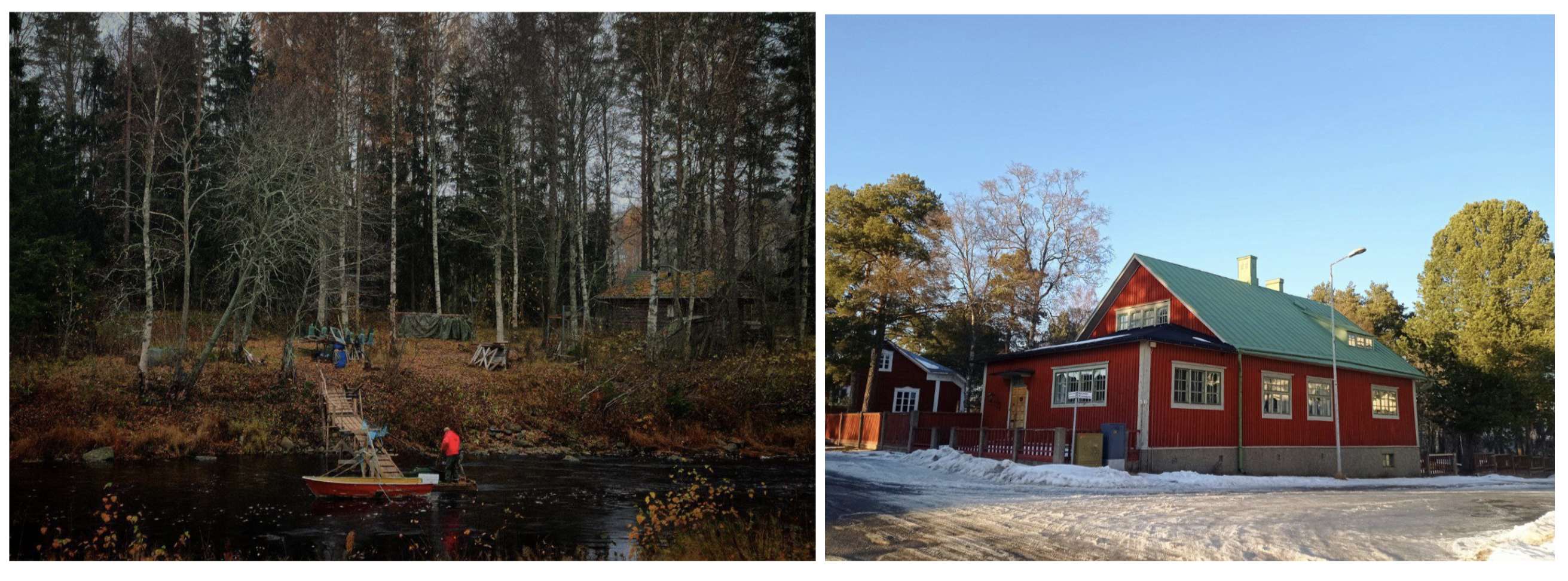
Typical Finnish landscapes around Kokkola, where Nastia lives
Here, the two of us have been living for a year in the town of Kokkola, where the Red Cross has provided us with accommodation. Finland provides us with financial assistance as refugees, although I don’t have a Ukrainian passport. Even the Finnish police registered me with the documents I had on hand. But I have no right to study or get an education, to work legally or to travel to other countries.
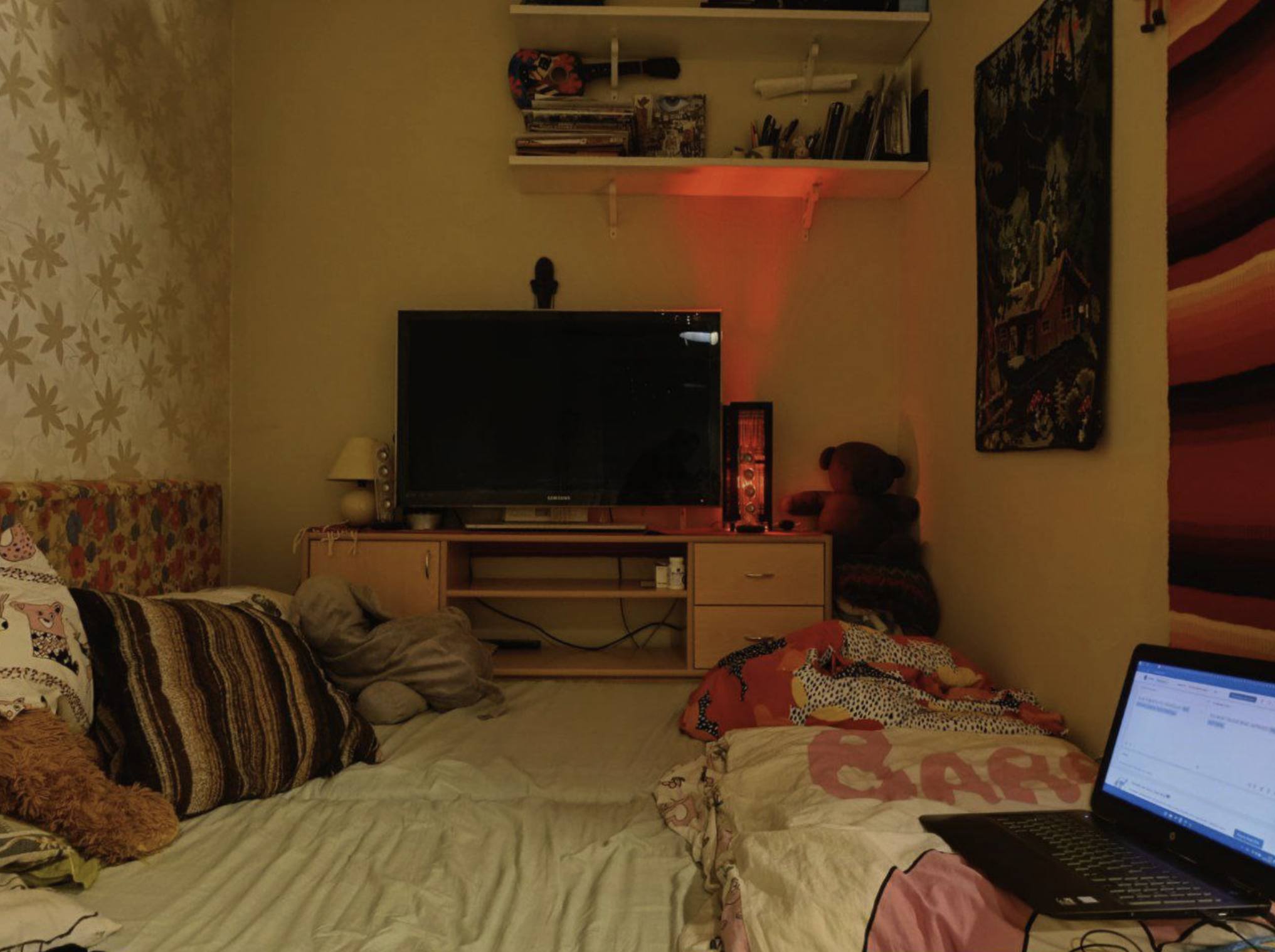
Nastia and her boyfriend Dima’s room in Kokkola, Finland
Of course, I didn’t just sit twiddling my thumbs but tried to figure out how to get a Ukrainian passport. When I first called the Ukrainian embassy, they asked me: “Why don’t you have a passport yet? You should get one where you came from.” Later, they just started saying, “We can’t help you with this issue.” I also submitted requests to the SMS, called everywhere I could. But everybody refused to help me.
Now I’m just waiting for change. Meanwhile, I volunteer at the Villa Elba Youth Centre, take care of our accommodation, paint, learn English and Finnish. I miss my home in Luhansk, so here in Finland I have organized an exhibition of artworks dedicated to my native land. But at the same time, I can’t plan anything in my life: I just have to wait until there are some new procedures and concessions for us, for people like me. There are a lot of people who have travelled abroad without documents from the territories occupied since 2014.
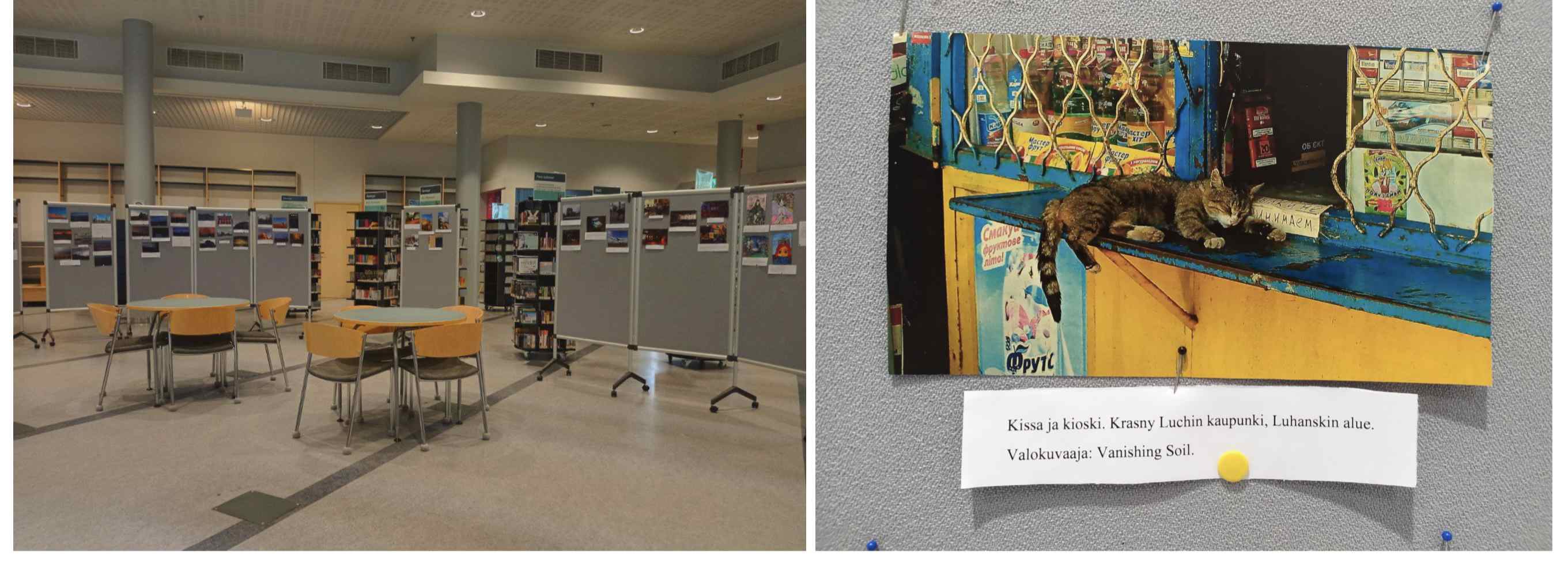
Iznanka (Inside Out), the exhibition for which Nastia collected works by artists from Luhansk and other cities and exhibited them in the library hall in Kokkola
Andrii: “Returning to the occupied territory never crosses my mind and I don’t regret leaving, but I can’t see a future for me here yet”
I’m from the village of Vesele, which is not far from Donetsk airport and Donetsk itself. I’m now 19 years old and have been living in Sweden for a year and a half.
When the war started in 2014, I was 9 years old. I moved to the Dnipro region to live with my aunt and went to school there for two years, and then in 2016 I returned to Donetsk and started sixth grade there. At the age of 14, I tried to persuade my mother to go with me to the government-controlled territory to get my passport. But she refused, giving different excuses: she didn’t have enough money, she had pets that she couldn’t leave behind, etc.
Russian TV, which appeared in my hometown after 2014, also played a role: my mother eagerly watched it, and it shaped her attitude towards Ukraine. To take the school exams, I obtained a DPR [Donetsk People’s Republic] passport, still being unable to get a Ukrainian one. Under the influence of Russian television, I began to worry that I would not be issued a Ukrainian passport because of my DPR passport. My mother did not support me in this matter – she did not care.
During the full-scale invasion, I travelled with the help of a regular carrier, having obtained written permission from my mother. She did not agree to this at first, but then she let me go. I travelled through Russia to Lithuania, Latvia, Poland and finally to Sweden. I had a DPR passport, a Ukrainian birth certificate, a taxpayer card, a secondary school certificate, and a DPR military registration card. My travel did not go smoothly everywhere, and at the Russian border I even had an argument so that the authorities would let me leave the country. At the border with Latvia, I was given a temporary visa printed on a regular A4 sheet, which, at least formally, confirmed my identity.
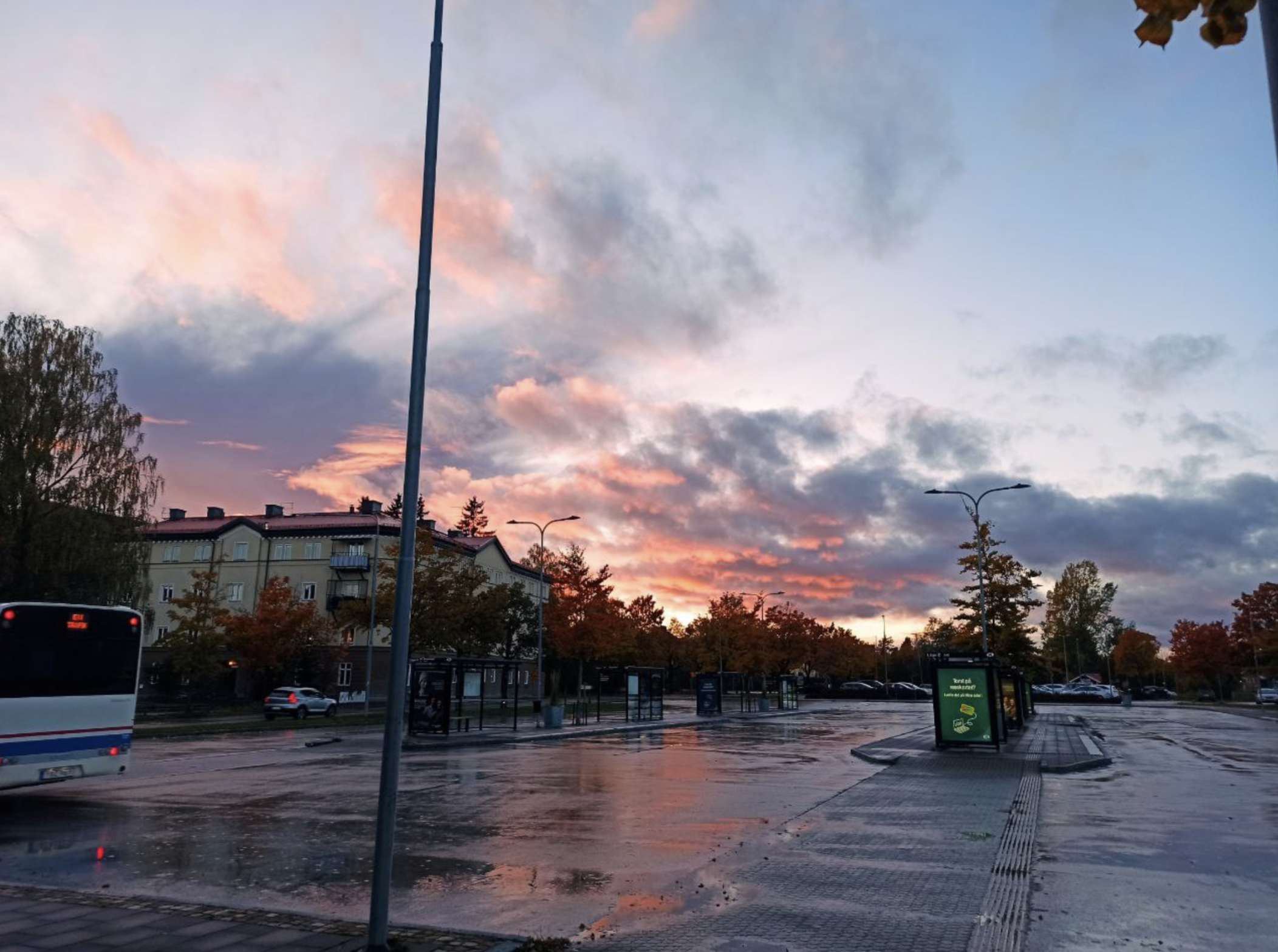
The small town of Sala in Sweden, where Andrii lives
In Sweden, I live in a small town near Stockholm with a family that takes in children without parents, like a host family. They are Swedes, but they have children from different countries. I arrived here on 24 July 2022, when I was still 17 years old. I was travelling without my parents, and because I was a minor at the time, I was given a temporary visa and placed in a host family. Now I’m studying in the 9th grade in Swedish at a preparatory gymnasium for migrants, but I will soon finish my studies, because I don’t see any more progress. So, I will have to leave the family, because I can only stay here while I’m studying at this gymnasium.
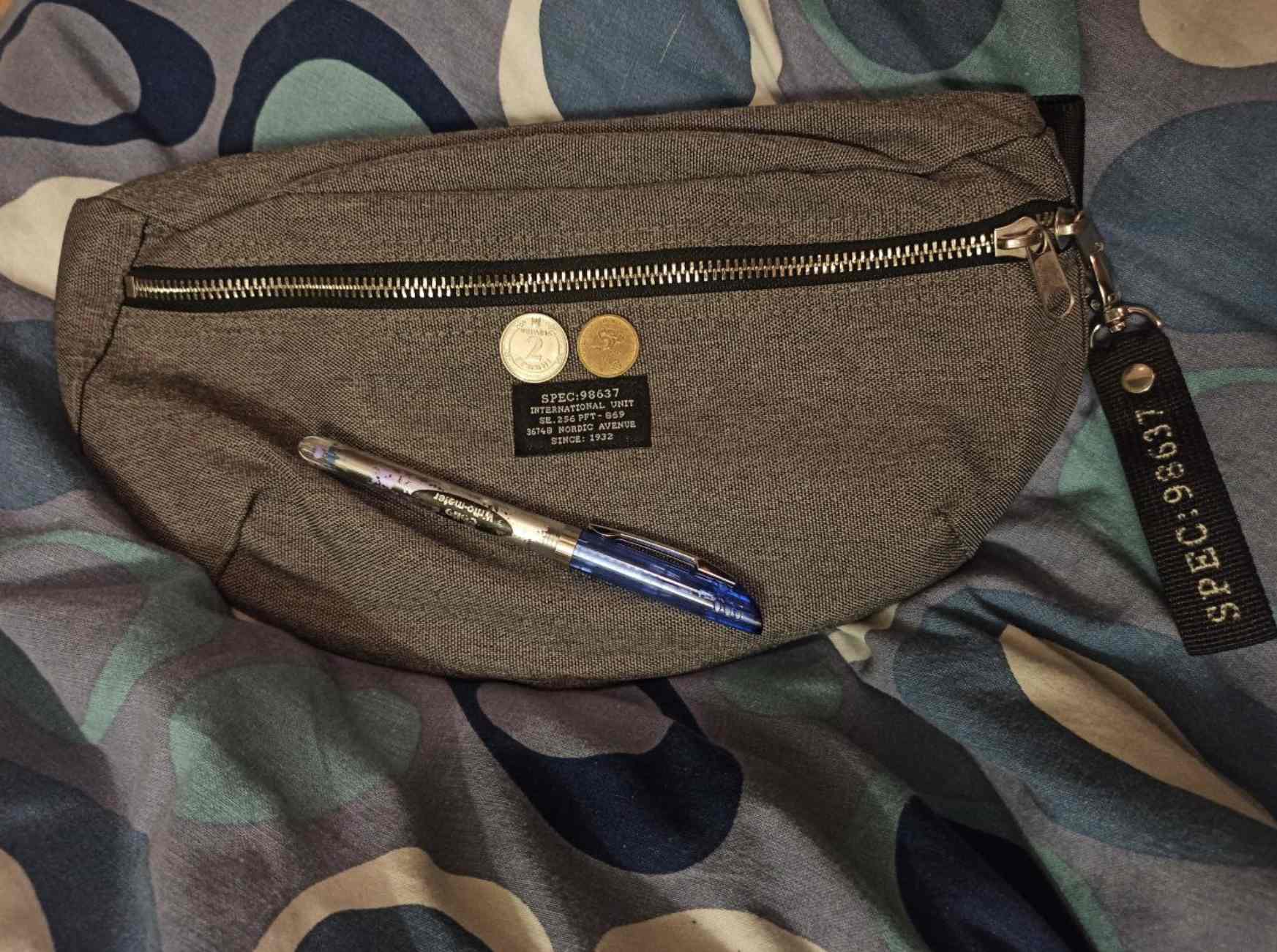
“This is what I took with me from home and decided to keep: a legendary pen that I’ve had since grade 9, coins and a bag. Of course, there were other things, but it’s now hard to tell them apart from the things I got in Sweden.”
“Now I have a residence permit, Swedish assistance and a special bank card for migrants, which receives social payments. I can’t get a regular bank card. I can’t study or work legally, nor can I travel to other countries, which means I can’t provide for myself and plan for the future. The Ukrainian migration service and the embassy give standard answers that can’t help me at all, instead plunging me even further into the darkness of uncertainty.”
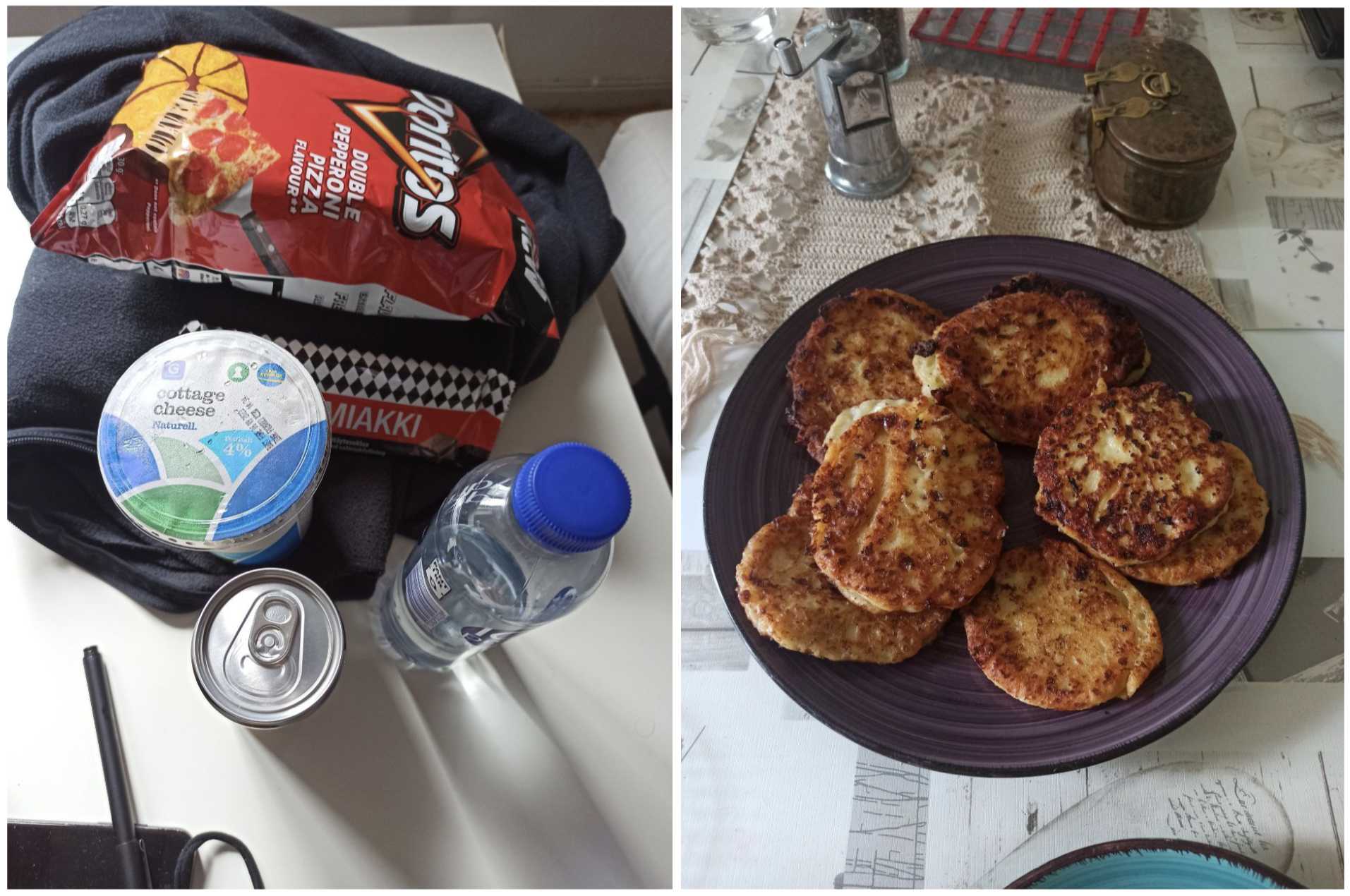
“Once I bought some cottage cheese here and made syrnyky, but they still didn’t taste like they did at home because the cottage cheese here is different: it even looks like white corn seeds, not like cottage cheese.”
Valeriia: “I have a disability, I receive medical care, but I have no right to work or study”
I’m from Alchevsk, Luhansk region, and I recently turned 22. Now me and my boyfriend are in Finland, in the city of Kouvola: I’m taking Finnish language lessons and painting. In 2014, I was 12 years old. In 2013–2014, I became ill with type I diabetes and started painting.
When I turned 18, I was motivated to get Ukrainian documents, but my parents did not support this decision in any way. And without them, it was difficult to go anywhere because to get a passport, I needed at least two people who could confirm my identity. So, my parents persuaded me to get an LPR passport, saying: “Well, now you’ll get this passport, and then we’ll see.”
In October 2022, I left Alchevsk for Finland via Russia, Belarus, Latvia and Estonia. I was travelling alone, but I had help from volunteers who financed the journey and planned my route. It took me a long time to decide to go on such a long journey, but my condition deteriorated due to diabetes. After a year in Finland, I felt better: my sugar level used to be 20 mmol/l, and now it’s around 6 mmol/l. Moreover, in Alchevsk, I was afraid that there would be a shortage of insulin due to the full-scale war. Now in Finland, I get insulin, needles, syringes and everything else I need – everything is paid for by the Red Cross.
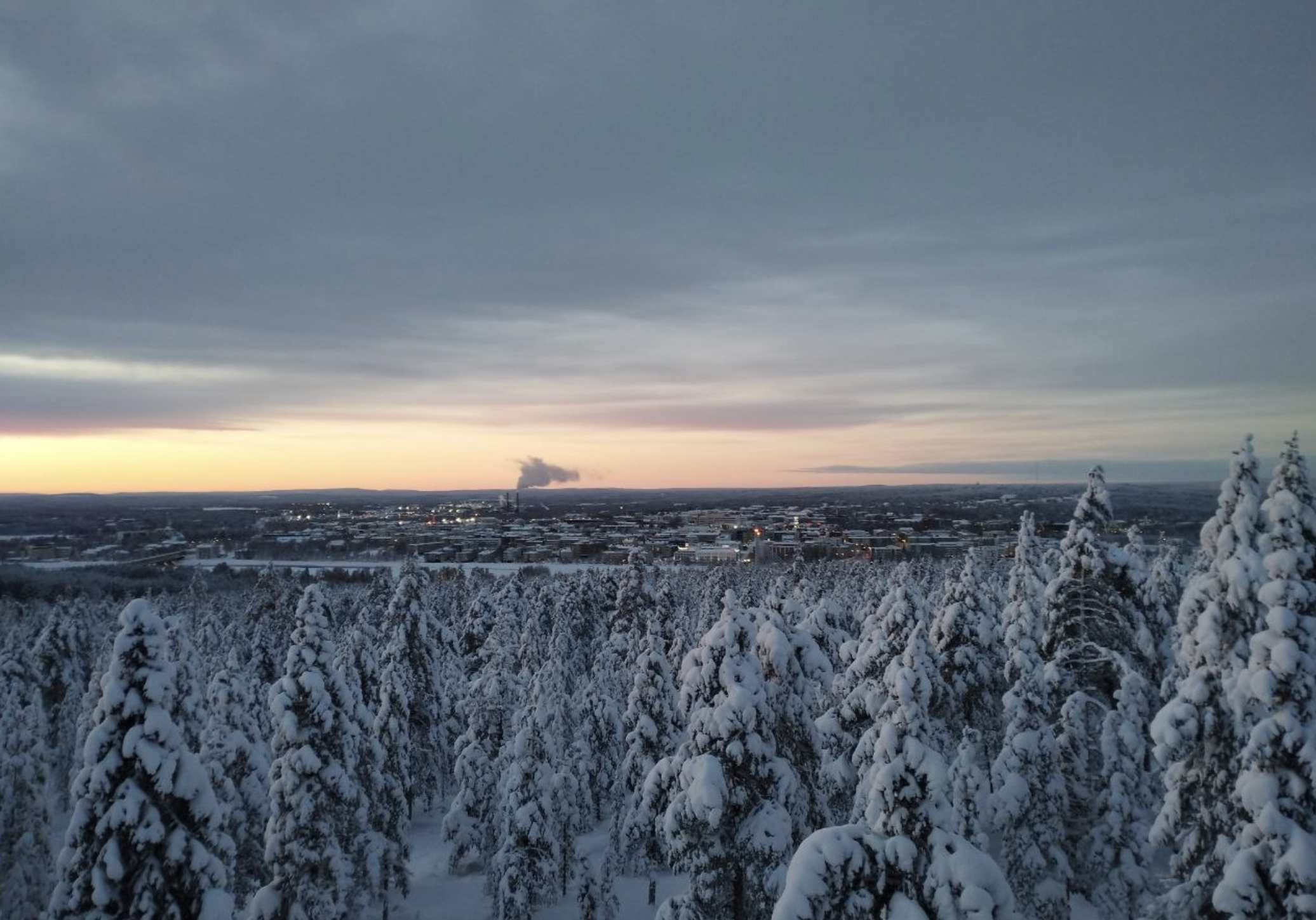
The incredible beauty of Finland
When I was leaving the occupied territories, I had a Ukrainian birth certificate, an LPR passport and a Ukrainian taxpayer identification number. I was allowed to go everywhere, although not without problems, but my disability and the fact that my boyfriend was waiting for me in the EU helped me to leave. In the host country, due to the lack of a complete package of documents, I could not even get an ID number (ulkomaalaisen henkilökortti) from the police. It is this number that allows you to open a bank card for payments, as well as study and work legally. But I still have a full package of social benefits and receive medical care. The Red Cross has rented us accommodation for two years. That’s the situation now.
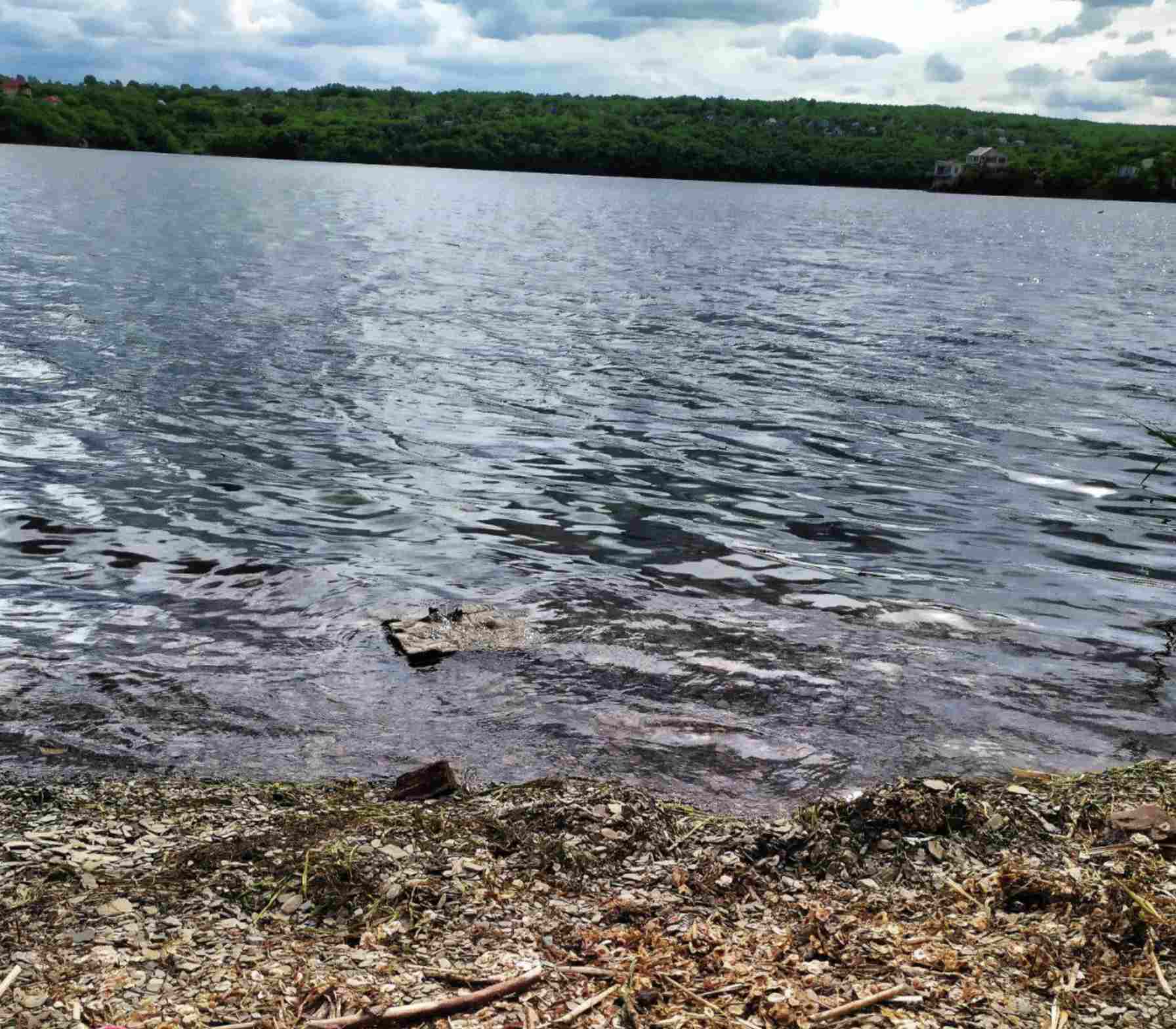
Memorable scenery from Alchevsk
Now it’s difficult for me to get a Ukrainian passport: the embassy and the SMS give scripted responses that I have to go back and try to get the documents done in Ukraine. But I have no relatives or friends who could confirm my identity there, no additional documents, and no strength to live in Ukraine now, without medicine, housing, or assistance. I also don’t want to return to the occupied territories, I don’t even consider this option.
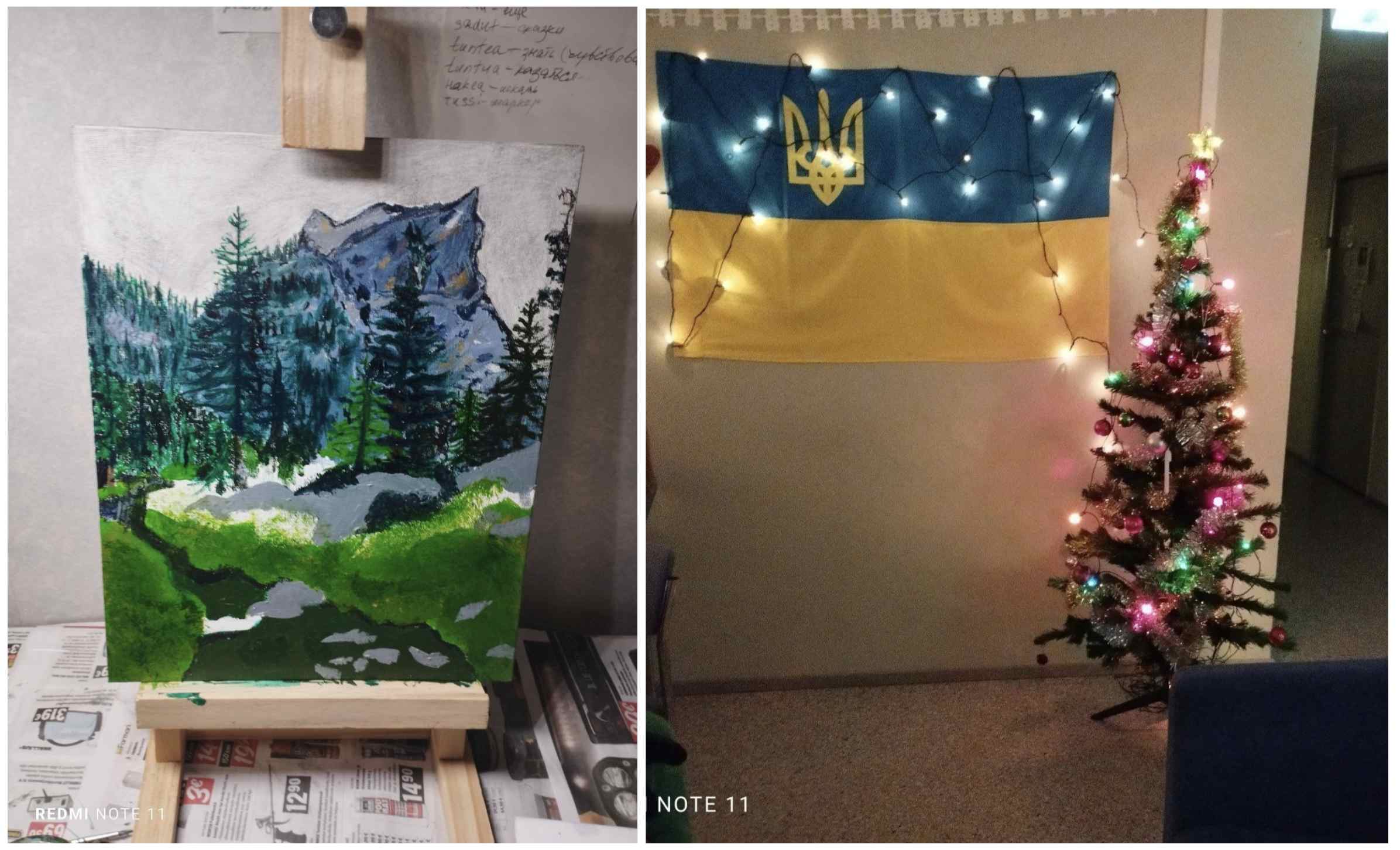
Painting is what helps me to be myself Last New Year, already in Finland
Fedir: “There’s no mention of me even in the Ukrainian archives”
My name’s Fedir, I’m from Krasnyi Luch, now renamed to Khrustalnyi. I was born in 2001, I’m 22 years old now. I left the occupied city on 17 April 2023, a year after the beginning of full-scale war. Now I live in Finland in the city of Kokkola and do long-term volunteering at the Villa Elba International Youth Centre.
I’d been preparing to leave Luhansk for a long time and didn’t know how it would go until the last moment. My friend and I found the volunteer organization Proezdom v Evropu (Travelling to Europe): these are Russians who help Ukrainians leave the occupied territories for EU countries. We were assigned a volunteer who built us a route through Moscow to Belarus, and from Belarus we travelled free on a volunteer bus to Poland. I had only my Ukrainian birth certificate and my LPR passport because I had not been able to get a Ukrainian passport before the full-scale war. Belarus let me through with these documents, and at the border with Poland they had questions, but still let me through, understanding the situation.
For two weeks, we lived for free in a hotel in Poland. In Warsaw, I found the state enterprise “Document” (Citizen Service Center “Passport Service”), but they told me that they could not help us, because you can obtain your first Ukrainian passport only on the territory of Ukraine. After that, I went to the Ukrainian consulate, hoping that I would at least get a certificate of identification. But they sarcastically asked me if I had an LPR passport, accepted photocopies of my birth certificate and told me to come back in a month to learn about the outcome of my application. But two weeks later I went to Finland: the volunteers convinced me that with this set of documents I could not get a certificate because there’s no mention of me even in the Ukrainian archives.
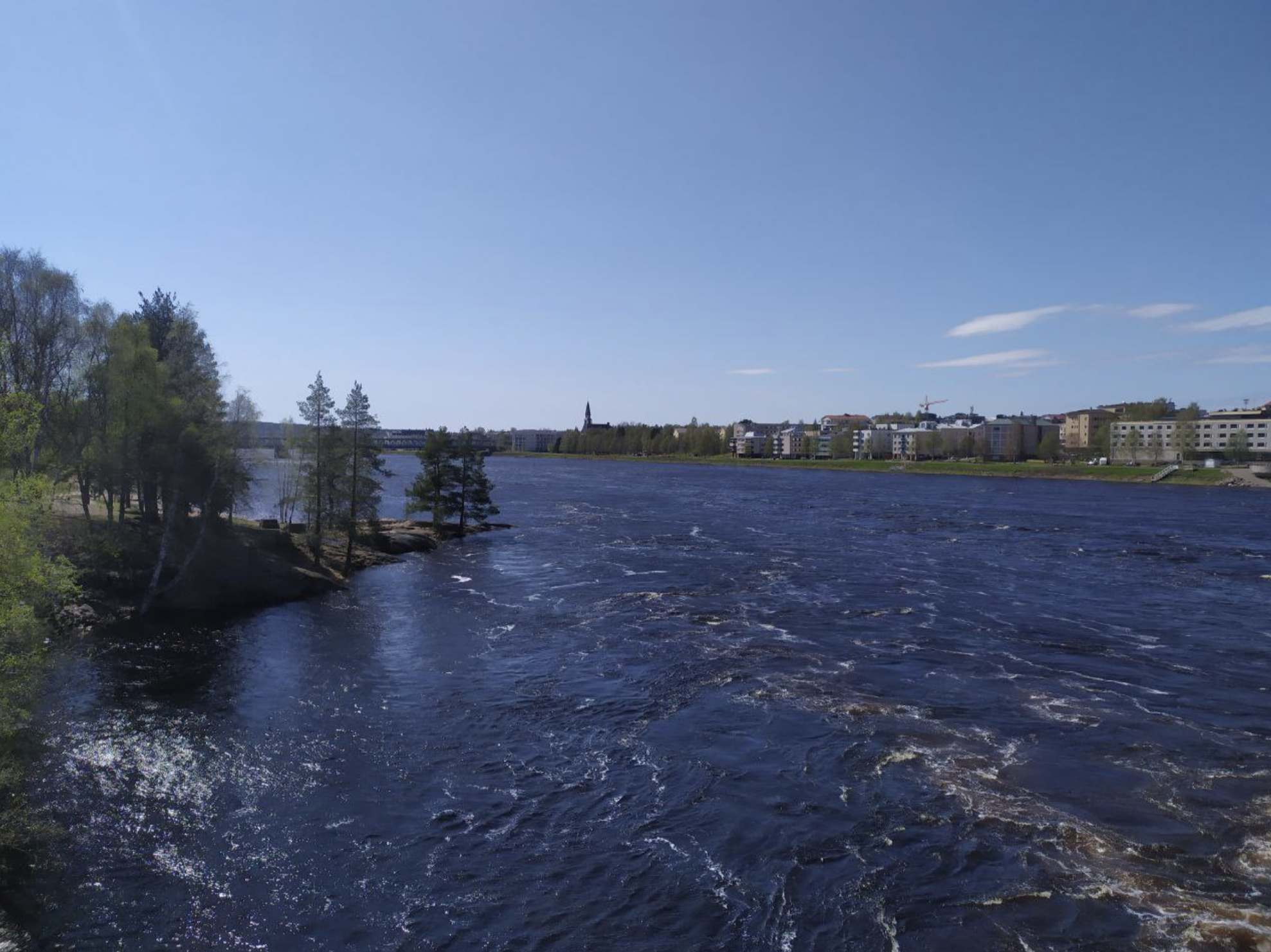
Typical landscapes of Rovaniemi, before moving to Kokkola
I decided to go to Finland because I was told that it was here that I would be able to live with such documents. I heard that there were cases when migrants with LPR passports were deported to Russia. I understand that it was just a rumor, but it was still a bit scary, so I came to Finland and I live here now. In the government-controlled territories of Ukraine, I have no one to confirm my identity, so there is no point in going back to obtain the documents. I’m waiting for some change.
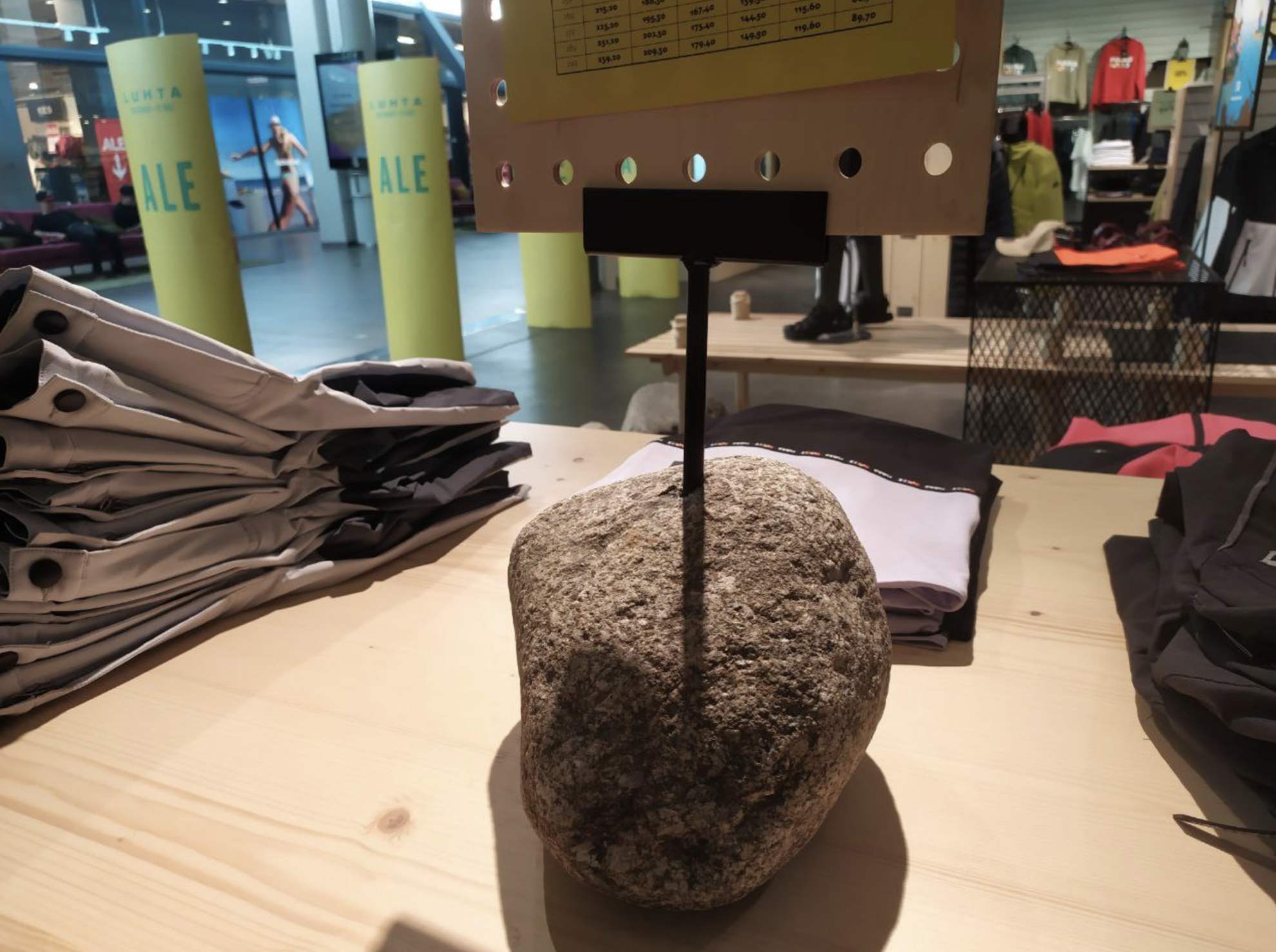
It’s a joke from Fedir: “Describe Finland in one word,” because there are many large stones in Finnish forests that have their own names
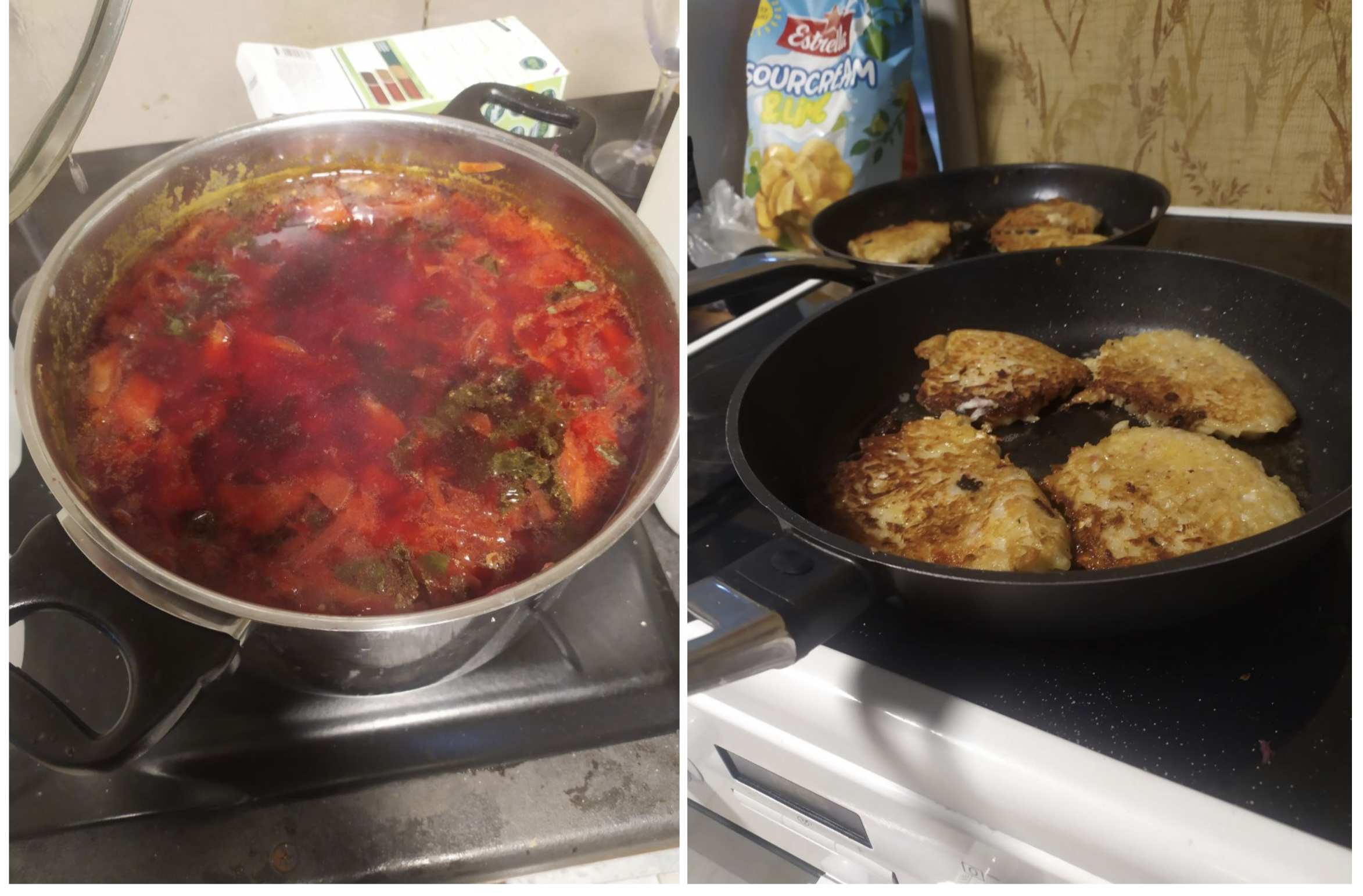
Fedir’s lunch for foreign volunteers in Finland: potato pancakes and borshch
Advice from the state migration service and Ukrainian lawyers
Nastia, Fedir, Valeriia and Andrii sent formal letters to the State Migration Service of Ukraine asking for help, describing the problem and seeking understanding. In response, they received identical letters stating that:
“In the absence of documents with a photograph or digitized image of a person’s face obtained from state registers, other information databases owned by the state, enterprises, institutions, or organisations, and based on the failure to confirm the identity of the person, the procedure for establishing the person’s identity is carried out by interviewing the witnesses indicated by the applicant.”
In other words, to obtain a passport, one must come to the local office of the SMS, provide the necessary documents with a photo or bring (or interview via video conference) witnesses to confirm the applicant’s identity. The official response also states that if the identity is not confirmed, the applicant will be denied a passport:
“If, based on the results of the procedure, the person’s identity has not been established, a decision is made to refuse to issue a passport to the person, which is communicated to the applicant, indicating the grounds for refusal.”
To better understand the response from the SMS, the editors of the Commons journal sought legal assistance in interpreting the response.
Levon Azizian and Ivan Kuleba provided the following explanation.
How likely is it that a decision will be made to establish the personal identity of such people? What exactly does it depend on? Are there any positive cases?
The procedure for establishing identity is an administrative procedure. However, the applicant’s identity can also be established in court: this is the legal position, for example, in the decision in case No. 524/5055/22. However, a person who wants to renew or obtain a passport of a citizen of Ukraine for the first time must first apply to the SMS. In the aforementioned case, this was one of the reasons why the court dismissed the application for identification – because this is not what the court should be doing. This does not mean that the trial is doomed to a negative outcome. You just need to challenge the unlawful actions of the SMS if they refuse to establish your identity in court.
Is a positive court decision possible? It depends on the evidence available. If a person has documents with a photo, a bank reference, a certificate of release from prison, relatives or neighbors who can confirm his or her identity, this increases the likelihood of a positive court decision. If a person does not have any of the above documents, the likelihood of obtaining a passport is close to zero.
As for positive cases, they do exist. For example, court decision No. 380/923/23. However, there are few positive cases as such a trial is quite complicated.
In summary, from a legal point of view, the only mechanism provided for such people is to apply to the SMS, undergo the procedure for confirming their identity and, in case of unlawful refusal by the SMS, go to court. The outcome of such actions directly depends on the evidence available to the person to prove his or her identity. But even if such evidence is sufficient, it is likely to be a long and complicated process that may involve several rounds of trials at different court levels.
Is it possible to create a mechanism that will simplify the process of obtaining documents for such citizens? Is it possible to make any amendments to Ukrainian legislation? Is there any way to encourage these changes through petitions, publications in the media, mass applications, or raising public awareness of the problem?
The main problem lies not in the legal mechanisms, but in the SMS itself. Unfortunately, the SMS makes the procedure for obtaining a passport unnecessarily complicated, despite the fact that (relatively) recent changes have simplified the procedure for establishing personal identity. Currently, one witness is enough for a person to confirm their identity. Should this procedure be further simplified? I’m not sure, because it is still necessary to maintain a balance between ensuring the rights of citizens and limiting the possibilities for abuse. However, we must now admit that the problem exists, and is at least partly related to the law enforcement practice of the SMS. And something should be done about it. Could media coverage of the problem somehow change this? Perhaps it could because there are currently no legal mechanisms to correct the situation other than going to court.
Important Changes
While this article was being written, some things have changed. First, Ukrainian citizens who are in the EU without Ukrainian passports have been issued so-called “grey passports,”[1] which allow them to cross the border of the Schengen area. They also received full-fledged documents from the police – an ID card/residence permit, which gives them the right to study and work.
The second change took place in Ukrainian legislation. The SMS website states:
“The government has made progress in the pilot program for issuing passports to Ukrainians abroad. The State Migration Service of Ukraine developed a draft law, and the Coordination Headquarters supported it to ensure Ukrainian citizens left the TOT [Temporarily Occupied Territories]. The changes provide for the introduction of a procedure for acceptance of documents and application forms of persons applying for a passport of a Ukrainian citizen for the first time after reaching the age of 18 by the state enterprise “Document” abroad. Foreign branches of SE “Document” can perform the identification process through video conferencing with the applicant and their close relatives.”
The first change means that Ukrainians without passports will be able to feel more free and at ease in the EU, at least until 2025, while the temporary protection programme is in place. As for the second change, it is not yet fully clear who will be able to go through this procedure and how it will be carried out. Perhaps it will apply only to those who have just turned 14. Or perhaps there are some other complicated nuances that will not change anything for the protagonists of this article and many other people.
It is vitally important that something changes. It is important that these people have the opportunity to get a Ukrainian passport where they live, or at least be helped to get to Ukraine and receive support there. After all, an undocumented person is very vulnerable, they have no rights or opportunities.
And most importantly, there should be comprehensive change, not just in the work of the State Migration Service. We must realize the scale of mass emigration from the occupied territories. We need to stop turning a blind eye to what has happened and is still happening to residents of parts of Luhansk and Donetsk regions occupied since 2014.
Footnotes
- ^ These “grey passports” are not the same as the grey passports issued to non-citizens in Estonia. In the case of the protagonists of this article, they received a so-called Alien’s Passport, which partially serves as a passport and allows anyone who has not confirmed their identity to travel to other countries where there is an embassy of their home country to obtain permanent documents there. It does not provide any other rights and can’t serve as the basis for official confirmation of a citizen’s identity. It contains a photo of the person, his or her name, surname, patronymic, and type of visa (B – temporary protection).

